| Day 1 Xian, Dunhuang ( ) |
| Our English speaking tour guide will pick you up at Dunhuang airport and transfer you to the hotel. Free time to explore Dunhuang in the first night by yourself. |
Dunhuang | In history, Dunhuang was an important town on the ancient Silk Road. Its greatest significance lies in its unique grottoes, located among a wilderness of yellow sands. Researchers say there are 735 grottoes in all, with the Mogao Grottoes providing a representative example. These caves were cut int…… |
|
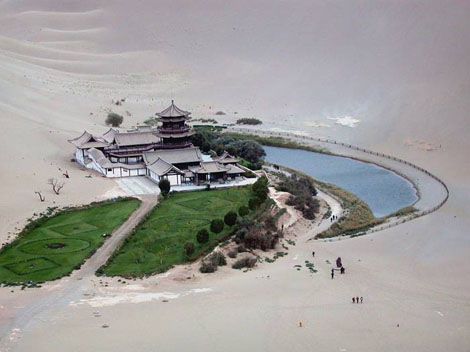 |
| [ Optional ] Dunhuang Museum: The Dunhuang Meseum is built on the former residence of Taoist Wang Yuanlu, who found the Cave by chance about 100 years ago. It display the cultural relics found in the world-famous "Sutras Cave" of Mogao Grotto. |
|
| Day 2 Dunhuang ( B,L,D ) |
| After a whole day tour in Dunhuang, you will take an overnight train (soft sleeper) to another "Pearl on the Silk Road" - Turpan. Stay overnight on the train. Train No.: Y951 (2018-0704) (leave Dunhuang at 20h18, arrive Turpan at 07h04 next day)
|
Crescent Moon Spring & Mingsha Mountain | Crescent Moon Spring is 6km south of Dunhuang in the Singing Sands Mountains and is quite literally an oasis in the desert. The Spring's name derives from the crescent moon shape the small pool of spring water has taken between two large sand dunes. Although the area is very dry, the pool doesn't dr…… | Mogao Grottoes | The Mogao Grottoes (Mogao Ku) also known as the Thousand Buddha Caves, constitute one of the three major Buddhist grotto sites in China. It is one of three noted grottoes in China and also the largest, best preserved and richest treasure house of Buddhist art in the world. |
|
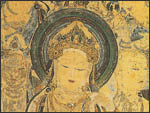 |
| [ Optional ] Thousands Buddha Cave: The thousands Buddha Caves used to be an important center for Buddhist worship. The Xizhou Huigu government of Gaochang Kindom built the royal temple of the King of Huigu that is sited here. |
|
| Day 3 Turpan ( B,L ) |
| Upon arrival at Turpan railway station, pickup by our English speaking tour guide and drive to hotel to freshup and have breakfast. Afterward our tours in Tupan start. |
Emin Minaret | It is designed in a simple Afghani style and was built in 1777 AD by a local ruler in order to show the impressive memories of his father's contribution to Qing government. | Karez well | These underground channels rate as one of ancient China's greatest public works projects as the Great Wall and the Grand Canal. The city of Turpan owes its existence to these vital wells and channels, some of which were constructed over 2000 years ago. | Ancient City of Jiaohe | The Ancient City of Jiaohe is situated at Yar Town, 13 km west of Turpan City. It was first the capital of the State of South Cheshi, which was one of the 36 kingdoms in the Western Region. | Flaming Mountain | Flaming Mountains are situated in the north of Turpan Basin. It were made famous in Chinese literature by the classic novel Journey to the West. The story is about the monk Xuan Zang and his followers who traveled west in search of the Buddhist sutra. The mountains seem to be on fire in the burning …… |
|
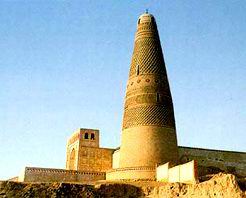 |
| [ Optional ] Gaochang Ancient Ruins: It was the capital of Uighurs when they moved into the Xinjiang Region from Mongolia in the 9th century. Gaocheng Ancient City became a major staging post on the silk road as a Buddhist center and printing center during the Tang Dynasty. |
|
| Day 4 Turpan, Urumqi ( B,L ) |
| Drive 2 hours to Urumqi, visit Heavenly Lake on the way. |
Urumqi | Urumqi is situated on the northern slope of the Tianshan Mountains, it is most famous for being the furthest city in the world from the ocean. Urumqi(Wulumuqi) means "A beautiful Pasture Land" in ancient Mongolian used by the Junggar tribe. 2000 years ago it was once an important town on the new no…… | Heavenly Lake | Driving about 2 Hours to the Heavenly Lake, This pristine lake is situated at a refreshing height of 1,980m and is surrounded by jagged snow-covered peaks, forests of pine trees and green meadows. The lake surface of Tianchi Lake is over 1900 m above sea level. Buddhists visit this spot to praise th…… |
|
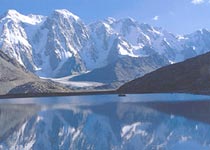 |
| [ Optional ] Xinjiang Museum: As an important place of Xinjiang Region, you can get a whole view of different folklore and customs about 12 ethnic minorities in the area, in the other hand, more than 10,000 culture relics displayed inside exclude some 11 natural corpses that preserved very well. |
|
| Day 5 Urumqi, Kashgar ( B,L ) |
| Fly to Kashgar. Visit the old town of Kashgar. |
Old town of Kashgar | The Old Town surrounds the center of Kashgar, with the Id Kah Mosque rising at its center. Use the north-south thoroughfare of Jiefang Lu to orient yourself and then head east or west into the thick of things. | Eid Kah Mosque | Lies in the center of the Kashgar, is a large-scale Islamic struture, it has over 500 years' history till now. In 1442 A.D., Shaksmirzha, the ruler of Kahsigar, had the mosque here at first and say prayers to the souls of his deceased relatives. |
|
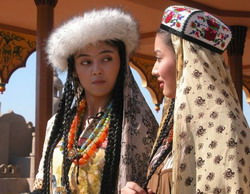 |
| [ Optional ] Kashi: Kashgar (or Kashi) is situated in the southwest of Xinjiang. From the west, this is the first point of arrival on land routes from Pakistan and Kirgyzistan. Long a vital stop on the Silk Road, this remote city some 4000 km from Beijing, used to take up to six months to reach from the capital. |
|